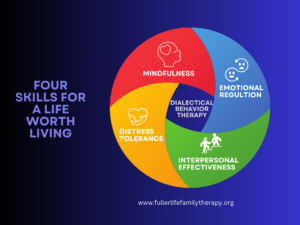Turning Despair into Hope: Responding When Teens Talk About Suicide
Few conversations are more alarming or heartbreaking than hearing a teen express a desire to end their life. Whether you’re a parent, teacher, or friend, knowing how to respond in that moment can make a crucial difference. In this guide, we’ll cover what steps to take when a young person opens up about suicidal thoughts and how you can provide support that could save a life.
The Shocking Truth: Suicide Is the Second Leading Cause of Death in Teens
According to the CDC, suicide is the second leading cause of death for individuals aged 10-24 in the United States, claiming thousands of lives each year. These staggering numbers remind us of the urgent need to talk openly about mental health and provide a lifeline to struggling teens. Understanding the risk factors, such as social media pressures, bullying, and family conflict, is the first step toward helping a young person in crisis.


When a Teen Says They Want to Die: How to React in the Moment
Hearing a teen say they want to die is terrifying. Your initial reaction may be panic or disbelief, but staying calm and composed is essential. Here’s how to respond:
- Listen First, Talk Later: When a teen confides in you about suicidal thoughts, your primary job is to listen—without interrupting, minimizing, or rushing to offer solutions. By offering them a safe space to talk, you help them feel understood rather than judged. It’s okay to say, “I’m really glad you told me, and I’m here to help.”
- Don’t Be Afraid to Ask Directly: Many people worry that asking about suicide will “put the idea in their head,” but research shows the opposite. Asking directly, “Are you thinking about suicide?” opens the door for honest communication. If they say yes, you’ve taken the first crucial step toward getting them help.
When to Step In: The Red Flags You Can’t Ignore
Recognizing the signs of suicidal ideation is critical. Some warning signs are subtle, while others may be more overt. Here are some behaviors to watch out for:
- Sudden Withdrawal: Teens who pull away from friends, family, or activities they once enjoyed may be sending a silent signal of distress.
- Giving Away Possessions: If they start handing out prized belongings or writing goodbye notes, it’s time to act fast. These are often signs that someone has made the decision to attempt suicide.
- Dramatic Mood Swings: If a teen experiences sudden shifts in mood—from deep sadness to irritability or euphoria—it could be a sign of internal turmoil. Mood swings are common among those struggling with suicidal thoughts.
The moment a teen opens up about suicide is your opportunity to intervene.

You Can Save a Life: Steps to Take When a Teen Is Suicidal
The moment a teen opens up about suicide is your opportunity to intervene. Here’s what you can do:
1. Stay With Them: If you believe they’re in immediate danger, don’t leave them alone. Whether you stay physically with them or offer constant emotional support, your presence can be a grounding force in their moment of crisis.
2. Contact a Professional: Connect them with a mental health professional, counselor, or therapist who is trained to handle suicidal ideation. Don’t hesitate to call the Suicide & Crisis Lifeline (988) for guidance on how to proceed in an emergency.
3. Remove Any Means of Harm: If they have access to weapons, medications, or anything that could be used for self-harm, take immediate steps to remove those items from their environment.
Breaking the Silence: What to Say and What NOT to Say
- Knowing what to say can feel overwhelming, but there are simple guidelines to follow:
- Offer Reassurance, Not Solutions: Avoid saying things like, “It’s not that bad” or “You’ll get over it.” Instead, offer reassurance: “I’m sorry you’re feeling this way, but I’m so glad you told me. I want to help.”
- Avoid Guilt-Inducing Statements: Comments like “How could you think of doing this to me?” or “You’re being selfish” can push a teen further into isolation. Keep the focus on their feelings, not your fears.
- Encourage, Don’t Push: Gently encourage them to talk to a professional, but avoid making them feel pressured. If they resist, offer to go with them for support or explore other resources together, like hotlines or text services. The Trevor Project (1-866-488-7386) offers crisis support tailored to LGBTQ+ youth.
Follow-Up Care: Why Ongoing Support Matters
The conversation doesn’t end after the initial crisis has passed. Follow-up care is critical to ensuring long-term recovery and stability. Here’s how you can continue to offer support:
- Check In Regularly: After the immediate crisis, make a point to regularly check in with the teen. A simple, “How are you doing?” or “Do you want to talk?” can remind them that they’re not alone in their struggles.
- Provide Encouragement: Encourage them to attend counseling sessions, and help them find support groups if needed. Ongoing therapy and peer support can make all the difference in a teen’s recovery journey.
- Stay Involved: Whether it’s through family activities, school meetings, or regular communication, staying involved in their life can offer a sense of connection and support that’s crucial during their healing process.
Final Thoughts: You’re Not Alone—And Neither Are They
The path to mental health and suicide prevention is not one you or the teen has to walk alone. There are countless resources available, from the Suicide & Crisis Lifeline (988) to local counseling services and support groups. Offering a lifeline during a moment of crisis can change—and even save—a life. By staying calm, listening with empathy, and seeking professional help, you can help a young person navigate their darkest moments and find hope again.














